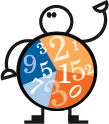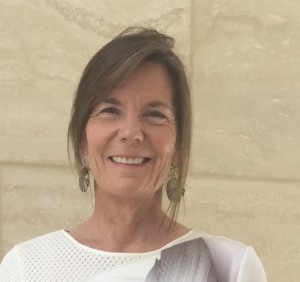Archive for March, 2017
Kidsdata on the Air
“Thanks Kidsdata, for helping me give a clear, accurate picture of Novato kids’ mental and physical health.”
When Marian Schinske, Founder and Executive Director of NovatoSpririt, looks for data to illustrate the need for her youth athletic scholarship program, she always turns to Kidsdata as her source for reliable information. During a recent interview with KWMR Radio, a local Marin County station, Marian used Kidsdata to inform listeners of the state of children’s mental and physical health in the city of Novato:
“I recently did some research about the overall health of NovatoSpirit kids through a wonderful resource called kidsdata.org, which is a program of the Lucile Packard Foundation for Children’s Health. I found that compared to children living elsewhere in Marin, Novato children may be less healthy and more vulnerable. For example, childhood obesity rates in Novato are higher than Marin County’s average rate. In Novato Unified School District, about one out of every three children in the 5th, 7th, and 9th grades is overweight, and physical fitness among Novato school kids decreased in recent years. Also, suicidal ideation, which means having thoughts about suicide, occurs more frequently amongst kids in Novato than amongst others county-wide. The most vulnerable time for all kids, everywhere, is the 9th grade, where 23 percent of Novato Unified School District children reported suicidal ideation. So sadly, 1 out of 5 high school freshmen here contemplates suicide. To me, this fact alone shows that all children here need more attention, guidance, empathy, and opportunity.”
When she’s not behind the microphone, Marian uses Kidsdata for grant proposals and presentations to city and school district officials across Marin County. She also uses Kidsdata in her annual reports for NovatoSpirit’s Board of Directors and donors.
“What’s great about Kidsdata is that I am able to tailor the information to the interests of my listeners and readers,” she says. “Everyone who has encountered the data has been very surprised. They have no idea that children could be so vulnerable, especially here in Marin County. Kidsdata gives some very eye-opening information that can encourage others to view Novato’s children with more empathy and understanding.”
For more stories from our users, visit our Data in Action page. Have a story of your own? Submit it using our online form or email us at [email protected].
Posted by kidsdata.org
Post Comment
1/3 of CA children who need mental health treatment fail to receive it
Thirty-seven percent of California children who need mental health treatment failed to receive it, according to the most recent data available on kidsdata.org. Madera, Merced, Monterey, and Tulare counties had the lowest rates of all counties with available data, with nearly half of children who need mental health treatment failing to receive it in the previous 12 months.
Screening, early identification, and treatment are critical, as untreated mental illness can disrupt children’s development, academic achievement, and their ability to lead healthy, productive lives.
Policy options that could support mental health care services include ensuring that mental health funding is aligned with high-risk populations, improving coordinated, cross-sector strategies by integrating mental health services with other systems, promoting mental health training for pediatricians, and expanding the workforce of qualified mental health professionals serving youth.
Related Data
Youth Alcohol, Tobacco, and Other Drug Use
Youth Alcohol, Tobacco, and Other Drug Use
Helpful Links
Centers for Disease Control and Prevention: Mental Health
National Institute of Mental Health: Child and Adolescent Mental Health
Overlooked and Underserved: “Action Signs” for Identifying Children with Unmet Mental Health Needs, Pediatrics
Supportive Relationships and Active Skill-Building Strengthen the Foundations of Resilience, National Scientific Council on the Developing Child
Three Out of Four Children with Mental Health Needs in California Do Not Receive Treatment Despite Having Health Care Coverage, UCLA Center for Health Policy Research
Stanford Center for Youth Mental Health and Wellbeing
Kidsdata Tip
Join Kidsdata and the California Department of Public Health on March 29 for a webinar on Childhood Adversity: Data to Help Advocate for Change. Read more and register.
Posted by kidsdata.org
Post Comment
Webinar: Childhood Adversity—Data to Help Advocate for Change
Date: Wednesday, March 29, 2017
Time: 10:30 to 11:30 a.m. PT
Childhood adversity, such as child abuse and exposure to violence and poverty, can have negative long-term impacts on health and well being. In this webinar, our panelists will discuss how to describe the burden of childhood adversity in your community, how to frame your message most effectively, and how to engage and mobilize your community to address the roots and effects of childhood adversity.
Panelists will also lead participants on a virtual tour of Kidsdata’s Childhood Adversity and Resilience data, research, and policy recommendations.
Marissa Abbott
 Marissa is a California Epidemiologic Investigation Service (Cal-EIS) Fellow at the California Department of Public Health. She is placed in the Safe and Active Communities Branch and primarily supports the CDC-funded California Essentials for Childhood Initiative, a child maltreatment prevention project. Prior to her fellowship, Marissa completed her Master of Public Health (MPH) degree at the University of Rochester School of Medicine and Dentistry as a part of their 3-2 Program.
Marissa is a California Epidemiologic Investigation Service (Cal-EIS) Fellow at the California Department of Public Health. She is placed in the Safe and Active Communities Branch and primarily supports the CDC-funded California Essentials for Childhood Initiative, a child maltreatment prevention project. Prior to her fellowship, Marissa completed her Master of Public Health (MPH) degree at the University of Rochester School of Medicine and Dentistry as a part of their 3-2 Program.
Nathan Porter
 Nathan is Data Manager at the Lucile Packard Foundation for Children’s Health, where he works on kidsdata.org, a public service website that allows users to easily find, customize, and share data on more than 600 measures of child health and well being. Kidsdata.org makes it simple to incorporate trusted data for every county, city, school district, and legislative district in California into reports, presentations, articles, grant proposals, policy decisions, and advocacy work.
Nathan is Data Manager at the Lucile Packard Foundation for Children’s Health, where he works on kidsdata.org, a public service website that allows users to easily find, customize, and share data on more than 600 measures of child health and well being. Kidsdata.org makes it simple to incorporate trusted data for every county, city, school district, and legislative district in California into reports, presentations, articles, grant proposals, policy decisions, and advocacy work.
Childhood Adversity and Resilience Data
Childhood Adversity and Resilience
Children with Two or More Adverse Experiences
Children Who Are Usually/Always Resilient
Prevalence of Childhood Hardships
Prevalence of Adverse Childhood Experiences
Posted by kidsdata.org
2 Comments




